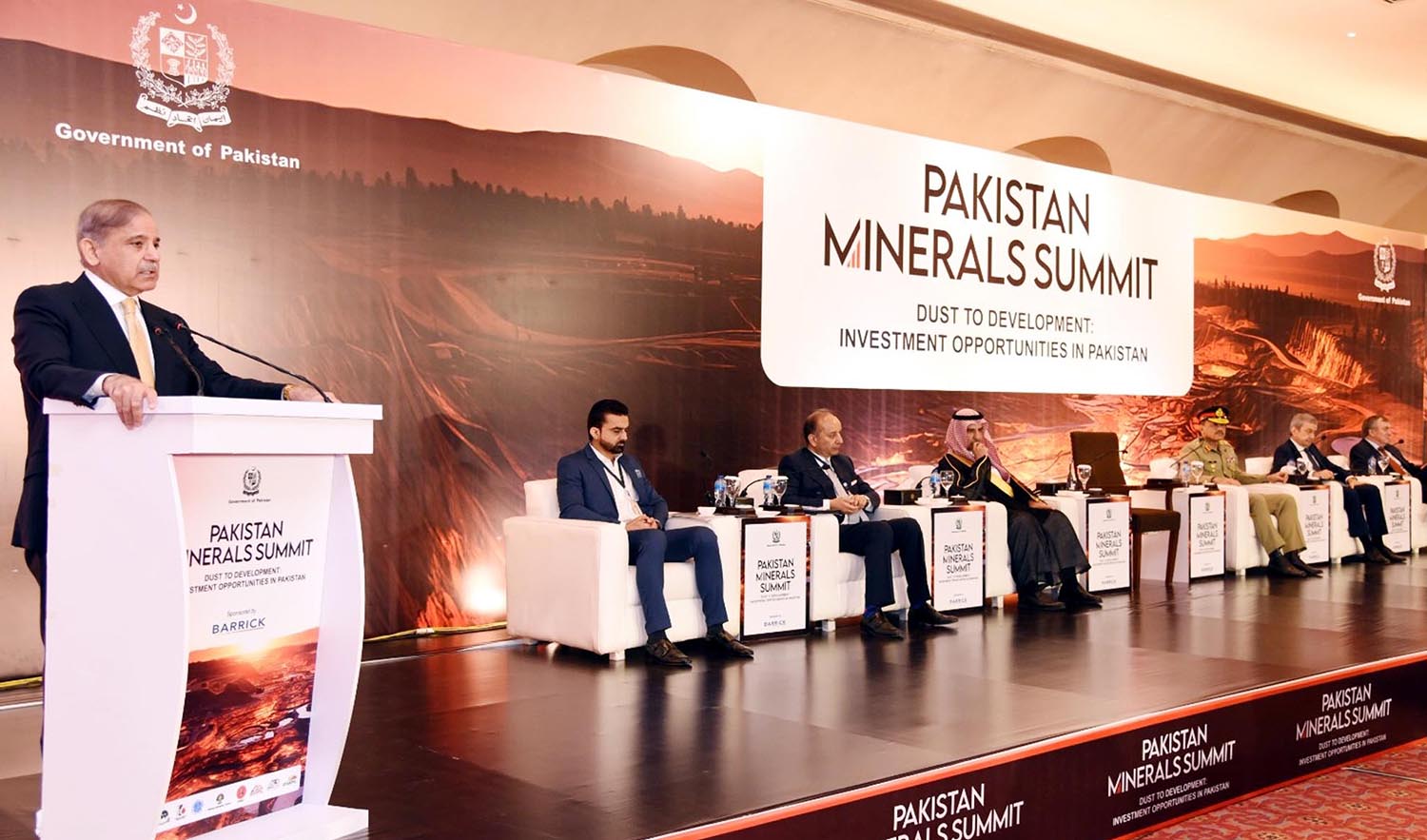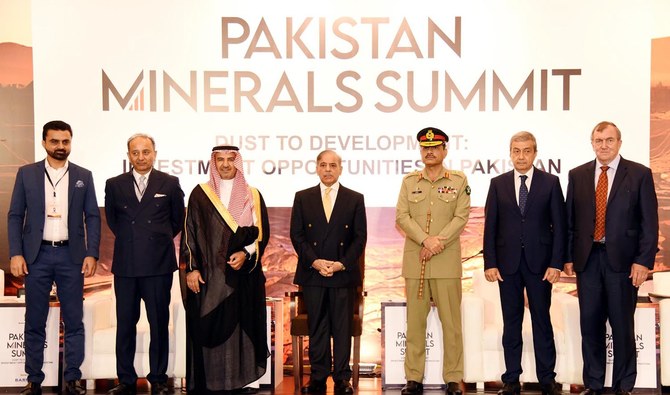ISLAMABAD: Army chief General Syed Asim Munir said on Tuesday foreign investors would be an "integral part" of realizing the potential of Pakistan’s estimated $6 trillion worth of natural deposits, while Prime Minister Shehbaz Sharif called for following the example of Middle Eastern states in tapping and developing mineral wealth.
Both leaders were addressing Pakistan's first dedicated summit on minerals, which was widely attended in Islamabad by foreign investors, diplomats, and international dignitaries.
The summit was organized under the umbrella of the Special Investment Facilitation Council (SIFC) that Pakistan set up in June to attract foreign investment. The army has been given a key role in the body and will be involved in all projects under the new framework.
“Our vision for the mining industry goes beyond financial gains,” Munir said, assuring foreign investors that the federal and provincial governments and Pakistan's security forces were on the “same page” to provide secure investment opportunities.
“Foreign investors will be an integral part of the mines and mineral projects and their investment will be secure under the Special Investment Facilitation Council … We will establish an investor-friendly system that avoids unnecessary complications and provides favorable conditions.”
“There are vast opportunities for exploration in our country, and we will make sure that these opportunities are realized through joint efforts,” Munir added.
In the past, a joint venture was blocked by Pakistan’s Supreme Court from developing Reko Diq - one of the world’s biggest untapped deposits of copper and gold - following a court case over how the contract had been awarded. Pakistan’s government was later ordered by a global arbitration body to pay $5.8 billion in damages after Tethyan Copper took it to court. The dispute was only resolved after Barrick Gold ended the conflict last year and said it would start to develop the gold and copper mining projects under a new agreement.
Pakistan's mineral-rich province of Balochistan and the country's northwestern regions are also home to both militants and separatist insurgents, who have engaged in insurgency against the government for decades and made exploration difficult for the government and undesirable for foreign investors.

Pakistan Prime Minister Shehbaz Sharif addressing Pakistan Mineral Summit in Islamabad on August 1, 2023. (PID)
Addressing Tuesday’s ceremony, Prime Minister Shehbaz Sharif said Pakistan should learn from its "bitter experiences" of the past and follow the example of Middle Eastern states who had built and strengthened their economies by tapping mineral wealth.
States like Saudi Arabia and the United Arab Emirates had set an example for other countries, including Pakistan, by building on oil and gas resources, Sharif said.
“If sand dunes could be converted into great models of progress and prosperity by our brothers, why can’t we convert our dust into gold,” he asked.
Saudi vice minister for mining affairs, Engineer Khalid Bin Saleh Al-Mudafiq, who was also present at the summit, said the Kingdom wanted to enable the development of a responsible mineral value chain in Pakistan.
“Let us unite our efforts to harness the full potential of Pakistan’s, Saudi Arabia’s, and the region’s mineral sector,” the minister said.
“Together, we can pave the way from dust to development, transforming our nations into thriving hubs of mineral resources, economic prosperity, and sustainable growth …I look forward to celebrating soon the eminent success of the Pakistan mining sector.”


















